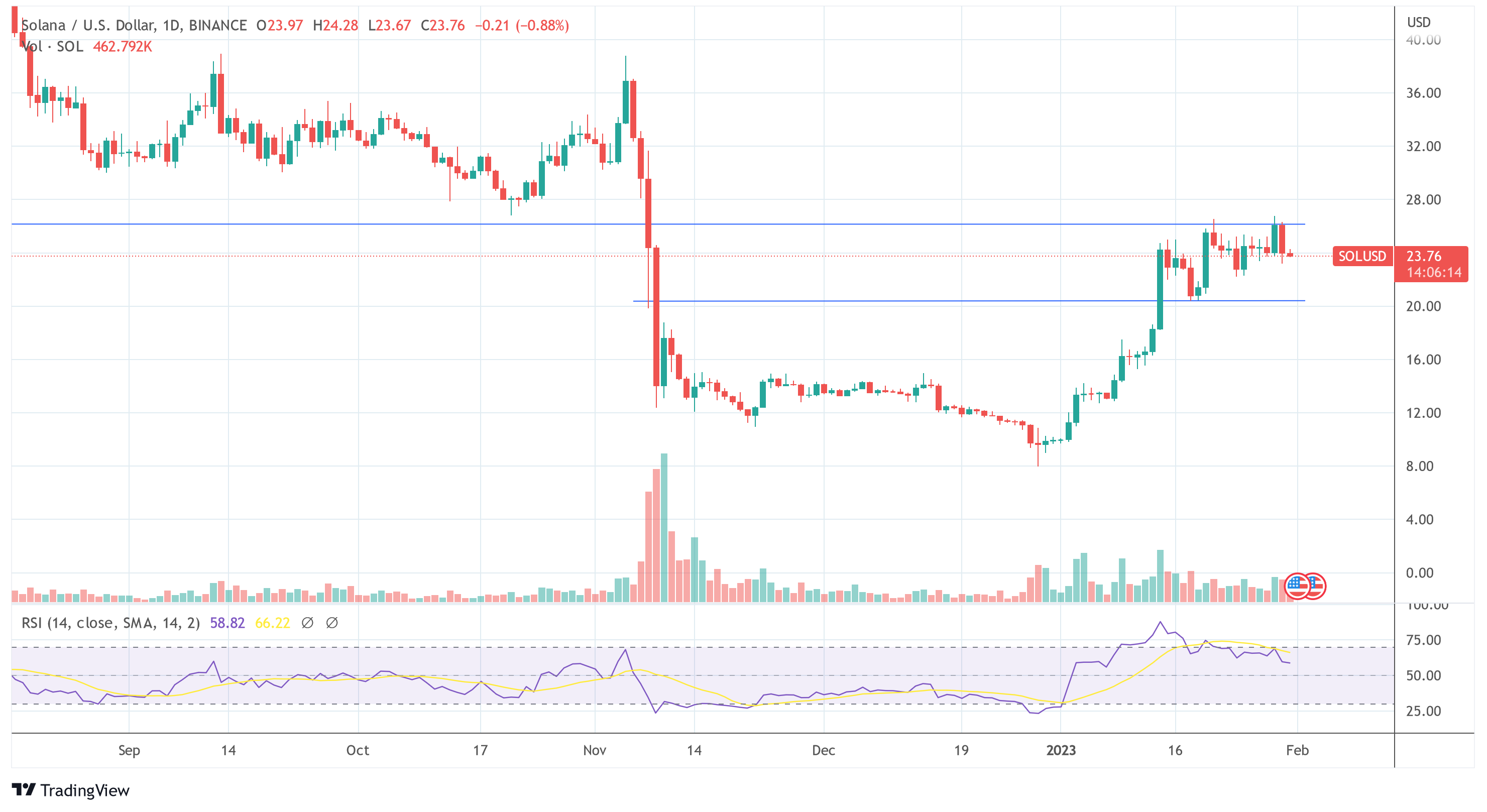Chris Burniske, a co-founder of Placeholder VC, a venture capital firm that invests in decentralized networks and Web3 services, laid out his bull case for Solana in a new episode of the Bankless Podcast.
The analyst was one of the few Solana’s proponents who believed in the network’s potential, even after the FTX collapse and the SOL price crash to $8.05 on Dec. 29, 2022. In the podcast, Burniske reiterated his bullish stance for Solana as a network, as well as the SOL token and its price.
Why Solana Is Having The Biggest Bull Case
According to Burniske, Solana is at an early stage at this point, like Ethereum was in 2018. Even though Ethereum is currently “a much harder asset,” Solana is “on the path to harden its asset and will continue to do so.”
When asked if the SOL token will follow a similar path as Ether, which has become a form of money with its decreasing supply, the analyst said:
Yes. I expect an evolution. When I look at SOL’s inflation, and Placeholder has an internal tracker, it is 6% annually which is quite low from a yielding perspective for the people who are putting up capital.
The reason for this is the current inflation of Solana to its peers. While ETH clearly tops the list with 0-1%, Solana ranks second with 6%, while other networks like Near with 20% and Avalanche with 22% have significantly higher inflation.
“The reason why this is super relevant is that valuation of proof of stake assets finds their footing around those yield rates, and I am not denying that ETH has the best setup and it’s the most mature,” Burniske elaborated.
He further explained, “But the lower the yield is that basically implies to me the lower risk the validators views the asset is having and so they will tolerate lower rates of inflation.” This is an indicator of the strength of the network.
While other networks require inflation rates twice or three times as high to retain their validators, Solana requires much less monetary incentive.
In terms of fees, only Ethereum can stand up to Solana as well. As Burniske elaborates, on a 24-hour basis, these are $15,000 for Solana, which is double that of Avalanche, triple that of Filecoin, and 6-7 times that of Cosmos Hub, with Ethereum, again boasting “100x” in fees, as the analyst acknowledged.
One metric that Burniske didn’t mention, but is still very noteworthy, is daily active addresses. As the chart below shows, Solana ranks first with 451,200 daily active addresses, followed by Ethereum (373,200), Polygon (346,100), NEAR (64,700), Avalanche (39,900), and Aptos (15,000).
Solana daily active users 450k
Ethereum daily active users 373k pic.twitter.com/OP978Ig8Xg
— Alex
(@ShiLLin_ViLLian) January 30, 2023
Is SOL Price Undervalued?
Based on fundamental strength, Burniske believes Solana is the most undervalued ecosystem. The Placeholder VC co-founder explained that in every bear market, his company picks one or two assets and builds an “aircraft carrier strategy” around that ecosystem, and in the last bear market, it was ETH and Bitcoin.
“What I mean by aircraft carrier is if you take Ethereum, we buy a bunch of the core ETH assets and then venture fund around it, to really get to know that ecosystem. […] And then you can pick the best teams,” Burniske explained and revealed that Cosmos and Solana are those two assets currently.
Burniske also had a tip for the podcast’s listeners. While explaining that Solana’s venture stage valuations are right where Ethereum’s 2018/2019 valuations were, he revealed, “One that your user could check out is Tensor Trade, an NFT trading platform. Its closest analog would be Blur within Ethereum.”
At press time, the SOL price stood $23.76, seeing a rejection at the crucial resistance level of $26.13.

Post a Comment